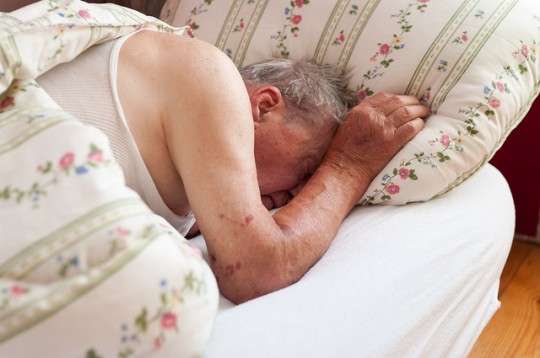Study shows seniors sleep better than younger adults
Study shows seniors sleep better than younger adults

The belief that sleep gets more difficult as we age may be false, according to findings recently published in the journal SLEEP.
In the study (subscription required), University of Pennsylvania researchers examined data from the 2006 Behavioral Risk Factor Surveillance System, in which 155,877 participants from around the United States were surveyed about their sleep quality. Participants were also asked about their race, income, education, mental well being, general health and time of last medical check-up. A MSNBC story published yesterday reports that study results showed:
When the researchers took health and depressed mood into account they found that people reported increasingly better sleep as they grew older – except for a brief decline in mid-life. That mid-life decline was worse for women than men. [Michael Grandner, PhD, lead author of the study] suspects menopause may be behind women’s mid-life sleep issues but noted that since sleep started to worsen even before then, the stress of work and raising children may be partially to blame. “For men, workplace issues may also be a likely culprit, as that age is associated with peaks in heart disease risk, stress, and sleep apea,” he said.
Compared to seniors over 80 years old, men between the ages of 18 and 24 were twice as likely to report problems sleeping. Among women the differences weren’t as large. Compared to seniors over 80, women between 18 and 24 were 1.61 times as likely to report problems sleeping.
The findings support earlier research showing poor sleep may not be a result of aging itself, but rather are caused by age-related illnesses or the medications used to treat them.
By Lia Steakley
Stanford University Medical Center
Photo by Matt Kowal
###
* Stanford University Medical Center integrates research, medical education and patient care at its three institutions – Stanford University School of Medicine, Stanford Hospital & Clinics and Lucile Packard Children’s Hospital.
** The above story is adapted from materials provided by Stanford University School of Medicine
________________________________________________________________




















